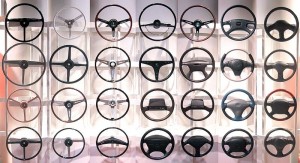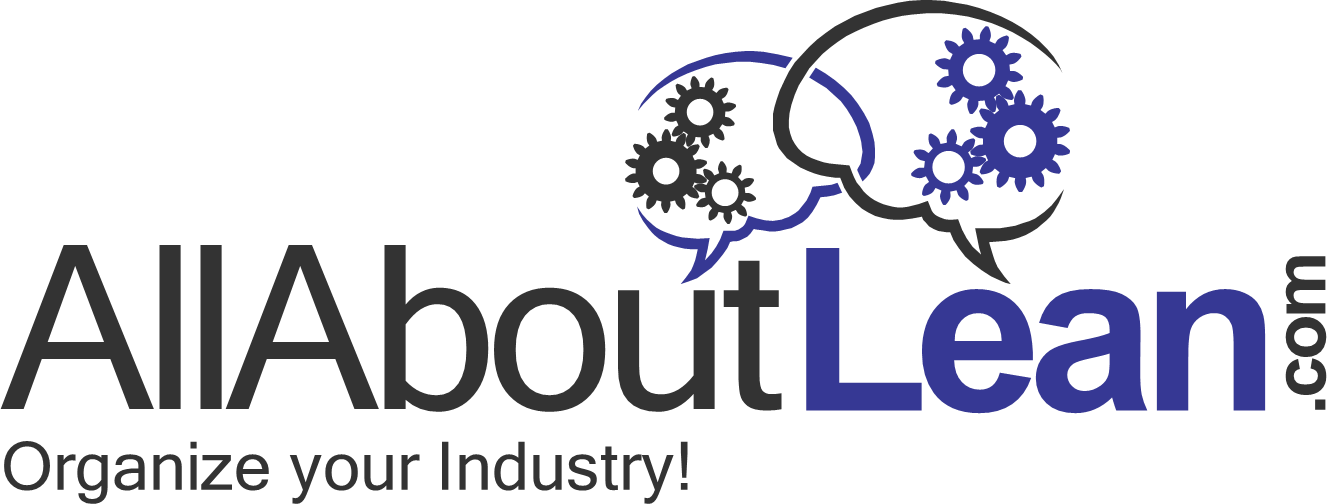 Industry 4.0 is (still) all the rage in manufacturing industry. I’ve already took A Critical Look at Industry 4.0. A lot of Industry 4.0 is hot air with a return on investment only far into the future. However, there are a few ideas that actually may work soon enough. In this post I would like to give my views of what works in Industry 4.0 and what doesn’t.
Industry 4.0 is (still) all the rage in manufacturing industry. I’ve already took A Critical Look at Industry 4.0. A lot of Industry 4.0 is hot air with a return on investment only far into the future. However, there are a few ideas that actually may work soon enough. In this post I would like to give my views of what works in Industry 4.0 and what doesn’t.
Buzzwords
Strategies for Mass Customization
 Mass customization promises us individually customized products at the price of a mass-produced item. We get something that is customized to our needs but doesn’t have the luxury price tag usually associated with custom-made products. While challenging, numerous different companies have managed to achieve customization with only marginally higher prices than standard products. In this post I want to look in more detail at how to achieve mass customization.
Mass customization promises us individually customized products at the price of a mass-produced item. We get something that is customized to our needs but doesn’t have the luxury price tag usually associated with custom-made products. While challenging, numerous different companies have managed to achieve customization with only marginally higher prices than standard products. In this post I want to look in more detail at how to achieve mass customization.
“Lean Standard” ISO 18404 – A Questionable Idea …
 Recently I learned about a new ISO 18404 standard certifying lean and Six Sigma organizations. I think this is a highly questionable idea, with little benefit for the quality of lean manufacturing. This certification madness won’t make much difference for the quality of lean but will mostly siphon off money to the International Organization for Standardization and connected bodies for certifications of little practical value. Let me show you the details …
Recently I learned about a new ISO 18404 standard certifying lean and Six Sigma organizations. I think this is a highly questionable idea, with little benefit for the quality of lean manufacturing. This certification madness won’t make much difference for the quality of lean but will mostly siphon off money to the International Organization for Standardization and connected bodies for certifications of little practical value. Let me show you the details …
A Critical Look at Industry 4.0
 One of the hottest buzzwords right now (at least in Germany) is Industry 4.0. However, it’s a bit fuzzy what Industry 4.0 is, exactly. In this post I would like to talk about Industry 4.0. This includes very little about all the promises of a wonderful future – you can read that elsewhere. Instead, I will try to give you the big picture. I will talk about how Industry 4.0 came into existence, why it is so popular, what the true current benefit of Industry 4.0 is, and why you should pay attention to clothes.
One of the hottest buzzwords right now (at least in Germany) is Industry 4.0. However, it’s a bit fuzzy what Industry 4.0 is, exactly. In this post I would like to talk about Industry 4.0. This includes very little about all the promises of a wonderful future – you can read that elsewhere. Instead, I will try to give you the big picture. I will talk about how Industry 4.0 came into existence, why it is so popular, what the true current benefit of Industry 4.0 is, and why you should pay attention to clothes.
Definition of Lean Production

As the name says, this site is all about lean manufacturing. But, what is lean? How do we define lean manufacturing? After all, since most of industry talks about lean, we should have a definition to make sure that we’re all talking about the same thing. Unfortunately, a) we do not have a good definition of lean, and b) not everybody means the same thing when they talk about lean. So, what could lean manufacturing mean? Let’s have a look at the different definitions out there:
Why Leveling (Heijunka) is important
 Production leveling, also known as heijunka (平準化) or production smoothing, is one of the hottest topics in lean manufacturing. Successful leveling is considered one of the highest achievements in lean manufacturing. Unfortunately, if the production system is not ready for leveling, it also has lots of potential to make things worse. A lot worse! This is the first post in a longer series of post about leveling, where I will present different types of leveling and their advantages and disadvantages.
Production leveling, also known as heijunka (平準化) or production smoothing, is one of the hottest topics in lean manufacturing. Successful leveling is considered one of the highest achievements in lean manufacturing. Unfortunately, if the production system is not ready for leveling, it also has lots of potential to make things worse. A lot worse! This is the first post in a longer series of post about leveling, where I will present different types of leveling and their advantages and disadvantages.
A Critical Look at Goldratt’s Drum-Buffer-Rope Method
 Eliyahu Goldratt developed different methods on how to manage production systems. These methods are nowadays known as the Theory of Constraints, or TOC for short. One key method described is called Drum-Buffer-Rope, or DBM for short. Similar to Kanban or CONWIP, it aims to constrain the work in progress (WIP) in the system. There is much discussion on which method is better than the other, although the result often depends heavily on with which method the respective author earns its living. In this post I will present how Drum-Buffer-Rope works, and discuss its advantages and shortcomings.
Eliyahu Goldratt developed different methods on how to manage production systems. These methods are nowadays known as the Theory of Constraints, or TOC for short. One key method described is called Drum-Buffer-Rope, or DBM for short. Similar to Kanban or CONWIP, it aims to constrain the work in progress (WIP) in the system. There is much discussion on which method is better than the other, although the result often depends heavily on with which method the respective author earns its living. In this post I will present how Drum-Buffer-Rope works, and discuss its advantages and shortcomings.
Facing Change in Modern Manufacturing Systems – The Difference between Flexible, Agile, Reconfigurable, Robust, and Adaptable Manufacturing Systems
 The speed of modern business is continually increasing. Product life cycles of cars and mobile phones are decreasing, and customer demand is more volatile. Gone are the days of Henry Ford, who produced his Model T for almost 28 years without much change. Modern manufacturing systems need to be prepared for a constantly changing environment. The challenge has been realized for quite some time now, and there are a multitude of expressions related to this problem. This post will discuss many of these terms related to the challenge of change.
The speed of modern business is continually increasing. Product life cycles of cars and mobile phones are decreasing, and customer demand is more volatile. Gone are the days of Henry Ford, who produced his Model T for almost 28 years without much change. Modern manufacturing systems need to be prepared for a constantly changing environment. The challenge has been realized for quite some time now, and there are a multitude of expressions related to this problem. This post will discuss many of these terms related to the challenge of change.
